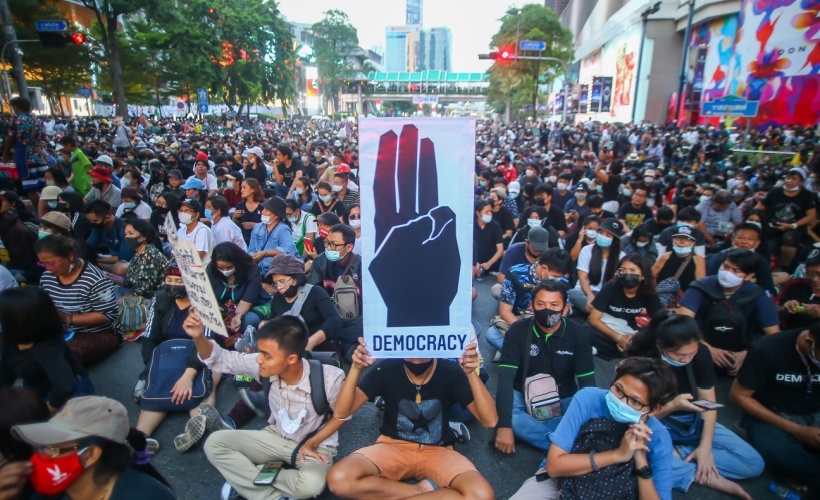The security relationship between Britain and Japan goes back to the early years of the last century. During the period of the Anglo-Japanese alliance (1902) the two countries collaborated on a global scale, with Japanese warships operating out of Malta during the First World War. This was followed by a traumatic breakdown in relations during the early 1940s as a consequence of the Pacific War.
Cooperation was resumed in the course of the Cold War and has intensified in recent years, culminating in a raft of new bilateral partnerships, most recently the Hiroshima Agreement of May 2023 and the Reciprocal Access Agreement of January 2023, characterised by the British government as “the most important defence treaty between the UK and Japan since 1902”.
Britain’s post-Brexit foreign policy ambitions, reaffirmed in the Integrated Review Refresh and Japan’s proactive diplomacy, as well as mutual concern over the challenges from the People’s Republic of China and North Korea, have underpinned these developments. There is even talk of Japan joining AUKUS or deepening involvement in the Five Eyes intelligence partnership. The British and Japanese governments describe one another as their “closest security partners in Europe and Asia respectively.”
Bilaterally, the two countries are able to deploy their forces to one another’s countries, are rapidly accelerating their defence and security cooperation, and are partnering to address a series of critical challenges in the Indo-Pacific. ‘Security’ has been defined by both governments broadly to encompass traditional military and intelligence issues, and also questions of economic resilience and the broader concerns over freedom of information, cyber security, and the maintenance of open societies and the values that underpin the rules-based international order.
In light of all this, the Centre for Geopolitics at Cambridge, FAMES, and Keio University have assembled a distinguished group of academics and practitioners to look at this broad sweep of history and reflect on what it might mean for us today.
This event will be followed by a drinks reception.
Panel Speakers:
- Dr Yuichi Hosoya is a professor of international politics at Keio University, Tokyo. Professor Hosoya is also the Director at Keio Center for Strategy (KCS), Keio University, and the Director of Research at the Asia-Pacific Initiative (API), Tokyo. Professor Hosoya was a member of the Prime Minister’s Advisory Panel on Reconstruction of the Legal Basis for Security (2013-14), and the Prime Minister’s Advisory Panel on National Security and Defense Capabilities (2013). He was a Visiting Fellow at Downing College, University of Cambridge (2021-2022).
- Professor Antony Best is a professor of international history at the London School of Economics and works on the British relationship with Japan. His latest book is British Engagement with Japan, 1845-1922: The Origins and Course of an Unlikely Alliance (Routledge, London, 2021).
- Dr Guibourg Delamotte teaches international relations and Japanese politics at the Japanese Studies Department of the French Institute of Oriental Studies.
- Paul Madden CMG is a visiting professor of international relations at Keio University, Tokyo and advises a number of major companies on geopolitical issues. He was British Ambassador to Japan (2017-21), Australia (2011-15) and Singapore (2007-11) and spent much of his diplomatic career in the Indo Pacific. He has an MA in Economic Geography from Cambridge University, an MBA from Durham University, studied Japanese at London University’s School of Oriental and African Studies and is a Fellow of the Royal Geographical Society. His latest book “Sankyu Japan” was published in 2021.
- Dr Michito Tsuruoka is an Associate Professor at Keio University and is currently a Visiting Fellow at the Australian National University (ANU) in Canberra. He received a PhD at King’s College London and works on international security, contemporary European politics and Japan’s foreign and security policy, including Japan-Europe relations. Prior to joining Keio University, he was a Senior Research Fellow at the National Institute for Defense Studies (NIDS), Ministry of Defense.
- Professor Chris Hughes is Professor of International Politics and Japanese Studies in the Department of Politics and International Studies (PAIS), University of Warwick. He was formerly Pro-Vice Chancellor (Education) (2016-2023). He has been a Research Associate at the International Institute for Strategic Studies (IISS) and Royal Institute of International Affairs (Chatham House), and Visiting Scholar at the East Asia Institute, the Free University of Berlin. In 2009-2010 he was the Edwin O. Reischauer Visiting Professor of Japanese Studies at the Department of Government, Harvard University, and is currently an Associate in Research at Harvard’s Reischauer Institute of Japanese Studies. He is co-founder of the Europe-Japan Advanced Research Network. Professor Hughes is also co-editor of The Pacific Review.
Chair: Dr John Nilsson-Wright (formerly Swenson-Wright) is an Associate Professor at the Faculty of Asian and Middle Eastern Studies (FAMES), University of Cambridge and an Official Fellow at Darwin College.







